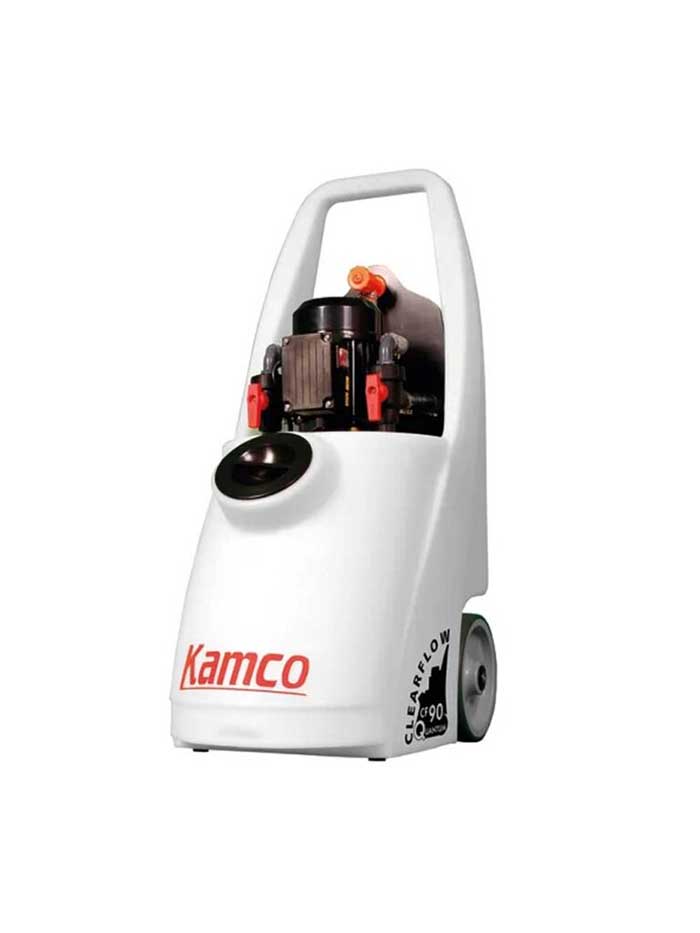
Power Flushing Southend On Sea & Surrounding Areas
Power Flushing removes sludge, rust, debris and limescale build-ups from your central heating system, which results in
- Increased Energy Efficiency
- Full Radiator Heat Output
- Lower Energy Bills
- Boiler Protection
Is It Time For A Power Flush?
If you’re reading this, you likely feel your central heating system isn’t 100%. You have heard of Power Flushing and feel it may be the answer to your heating problems.
If your central heating system is suffering from any of the following issues, you will definitely benefit from a Power flush.
Radiators Heat Slowly
Central heating systems should heat quickly. If you’re boilers in good working order and serviced annually, but your radiators take a while to heat up, then it’s likely there’s a sludge build-up in the system, and a power flush is required.
Radiators Cold At Bottom Or Bottom & Centre
The combination of rust, limescale, oil and particles forms sludge which tends to accumulate at the bottom of radiators. Over the years, the sludge build-up increases and gets higher. Heat cannot penetrate severe sludge, and if any of your radiators are not getting hot at the bottom, then there’s a sludge build-up that needs removing.
Severe sludge can build up to the middle of a radiator. If any of your radiators are only getting hot at the top, then this is the sign of a severe build-up. Not all sludge build-ups are equal across all radiators. You may find some work ok while others stay cold at the bottom and even middle. Some radiators may heat quickly while others don’t. Any of the above is an indication you need a power flush.
Badly sludged radiators may not even heat up at all. If your pipes are hot, your radiator valves are ok (and open) and won’t release water on bleeding. You have a severe sludge build-up. Get a Power flush ASAP. Harsh sludge can cause damage to boilers and radiators.
Black Or Brown Water On Bleeding
When bleeding your radiator, take note of the watercolour.
- Grey Water – greywater is normal and nothing to worry about
- Brown Water – brown water is an indication of corrosion. A power flush is recommended
- Black Water – black water is an indication of sludge in the system. A power flush is highly recommended
Boiler Keeps Switching Off
Various faults can cause a boiler to continuously switch off. Sludge may be the cause. If the water flows restricted and the pressure drops, your boiler will automatically switch off.
Pinhole Leaks
Corroded radiators may spring small leaks. If you notice any radiators leaking, it’s likely old and corroded from sludge and debris, which will wear away steel and copper from the inside slowly but surely over many years. Replace your radiator, thoroughly inspect your other radiators and flush your system. This will stop the leaking and prevent any further corrosion.
Noisy System
Dirty built-up systems can cause weird noises in the boiler, pipes, pump and radiator (as can other things, noise is not necessarily a sludge problem). A gas engineer will inspect your system to pinpoint the cause, and if sludge is the issue, then a Power Flush is recommended.
Never ignore any unusual noises. Rectifying minor issues before they turn into major issues is cheaper and less hassle in the long run. Powerflushing allows your system to run at full capacity and minimises the possibility of breakdown.
Cleanse Your Central Heating System With Power Flushing
Our Gas Safe registered engineers have Power Flushed many central heating systems around Southend over the years.
The procedure removes rust, debris, limescale and the resulting build-up known as ‘Sludge’, a mud type mixture that inhibits your central heating system slowing heat and wasting fuel.
In more severe cases, the sludge can cause blockages resulting in boiler failure and even damage, which is irreparable and requires a new boiler.
You can easily avoid these issues by having a Powerflush every five years or so. A clean system is far less likely to suffer from internal corrosion, blockages and boiler failure.
New Boiler?
When having a new boiler installation, always have a Power Flush beforehand. New boilers will run at their very best when the system is clean and free from sludge, giving you full heat output and the best possible energy efficiency and fuel spend.
The Benefits Of Power Flushing
Power Flushing results in many benefits, these include
- Increased energy efficiency is accompanied by lower energy bills.
- The system heats quickly. Radiators are hot all over with no cold spots.
- The system is fully cleared, free from damaging corrosive water, sludge and limescale.
- New water’s treated to help prevent further corrosion.
- The system runs smoother and quieter.
- Good for boiler warranties and preventing boiler breakdown
- All done in a single visit.
Hot water continuously circulates in your central heating system and becomes contaminated by rust particles and limescale, which breaks up and forms a sludge that settles and builds up. The water is also heavier and harder to pump through the system, meaning your boiler and pump have to work harder, and your radiators take longer to heat up.
Clean water is conducive to a smooth-running system. Dirty water stops heating systems from working at their full potential. It’s for this reason flushing’s usually carried out before replacing a boiler.
After Powerflushing, you’ll notice your radiators heat quicker and all over, whereas before, some radiators only got partially hot. You’ll also notice an improvement in your energy spending. An efficient system is cheaper to run, and less energy is consumed.
Before, you may have noticed weird noises in your pump, pipes, radiators and boiler. These noises usually disappear after power flushing.
Some boiler warranties require Power Flushing before installation to validate the policies (if you have a boiler warranty or boiler breakdown cover, check the small print). Before installing a new boiler, check to see if your system needs flushing.
Boiler breakdowns are less common with Power Flushed systems. Flushing removes elements that cause boiler failure giving you a warm, worry and hassle-free winter.
The Power Flush Procedure
- The Power Flush machine is securely fitted to the central heating system.
- The machine pumps a mixture of chemicals through the system in a continuous cycle.
- Gradually all sludge and other undesirable particles such as rust and limescale are loosened and dissolved.
- If required, large particles are dislodged manually
- The machine collects waste.
- The process is repeated until the system is fully cleared.
- Wastewater is removed and taken away by the engineer for safe disposal.
- The system’s refilled with clean water mixed with a corrosion inhibitor.
- The central heating system is switched on and checked to see if it’s working correctly.
Power Flushing FAQ
What is Power Flushing? – A procedure that removes disruptive elements such as rust, limescale and sludge.
Why bother removing sludge and limescale? – Sludge and limescale prevent central heating systems from working effectively and, in some cases, not at all.
What’s required to undertake Power Flushing? – A Power Flushing machine, chemicals and an experienced gas safe registered engineer
How does Power Flushing work? – A machine’s attached to your central heating system that pumps chemicals continuously. The chemicals remove sludge and debris.
Where in the system is the Power Flushing machine attached? – If you have a combi boiler, the machines connected at the head. If you have a system boiler, the machines attached to the pump.
Can the machine pressure damage my pipes or boiler? – No, the machines specially designed to cleanse the system at a low enough pressure that doesn’t cause fittings to leak and pipes to burst.
How long does a Power Flush take? – Generally, a few hours the exact time depends on the size, age and type of your system and how full the system is of sludge.
What happens to Power Flushing waste? – Our engineer will take it away and safely dispose of it.
Is Power Flushing worth it? – Power Flushing makes your system run better, providing a range of benefits such as increased energy efficiency, lower fuel bills and reduced wear and tear on your pipes, radiators and boiler.
What is Jet Flushing? – Jet Flushing is another term for Power Flushing.
What is Hard Flushing? – Hard Flushing is also another term for Power Flushing.
What Power Flushing machine and chemicals do TM Hughes & Son use? – Kamco, the industry standard and favourite of most Power Flushing engineers up and down the country.
How Much Does Power Flushing cost? – We’ll give you an exact quote based on the size and condition of your central heating system.
What Are TM Hughes & Son’s credentials? – We have over 30 years of experience in plumbing and heating. Powerflushing is undertaken by experienced, fully qualified and insured, gas safe registered engineers.
Book A Power Flush
If you would like to discuss your Power Flushing requirements, get a free quote or want to book a heating engineer, please contact us using the phone numbers or email below.

Hi, I’m Terry, the founder and owner of TM Hughes & Son Gas Services
Please get in touch to book an appointment or receive a free, no-obligation quote
Call – 01702 910075
Email – info@tmhughesandson.uk



